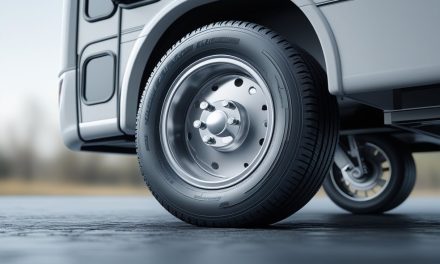In our newsletter, we posed a simple yet divisive question to our readers: “Do you have a composting toilet in your RV?” The results were surprising, to say the least. Before we dive into the nitty-gritty details, we want to remind you to keep an eye out for our newsletter polls. Your votes and opinions help shape our community’s insights and discussions, so don’t miss out on the chance to be part of our future findings!
Poll Results: The Verdict is In!
Drumroll, please! According to the poll, a whopping:
- 94% of our readers voted “No” to having a composting toilet in their RVs
- While a mere 6% said “Yes.”
Clearly, the traditional flush toilet reigns supreme in the world of RVs, but what does this really mean? Are composting toilets simply misunderstood, or are they the underdogs waiting for their moment to shine?
The Composting Toilet Conundrum
Let’s face it: the idea of a composting toilet can evoke a range of reactions, from sheer curiosity to outright horror. Picture this: you’re cruising down the highway, your RV stocked with all the comforts of home, and then it hits you—could a composting toilet really be a better option?
For the 6% of you brave souls who said “Yes,” we salute your eco-friendly spirit and adventurous nature. You’re the kind of folks who probably also enjoy kombucha and own at least one pair of Birkenstocks.
For the remaining 94%, we get it. The thought of dealing with composting material while on vacation might seem like more work than it’s worth. After all, who wants to be elbow-deep in decomposing matter when you could be roasting marshmallows by the campfire or exploring a new hiking trail?
Why the Results Came in as They Did
So why did the results skew so heavily towards traditional toilets? It could be a matter of convenience. Traditional flush toilets are familiar and straightforward, requiring less maintenance and offering the luxury of flushing and forgetting. Composting toilets, on the other hand, require a bit more involvement and a willingness to embrace a more sustainable lifestyle.
Would you like to save this article?
Another factor could be the initial cost and installation process. Traditional toilets are often already installed in RVs, while composting toilets may require an additional investment and some DIY skills. Lastly, there’s the “ick” factor—let’s be honest, the thought of managing your own compost might not be everyone’s cup of tea.
In conclusion, while composting toilets offer numerous environmental benefits and can be a great conversation starter at RV parks, it seems the majority of our readers prefer to stick with the tried-and-true flush toilet.
Whether you’re team compost or team flush, the most important thing is to find what works best for you and your RV lifestyle. Happy travels, and don’t forget to vote in our next poll!







